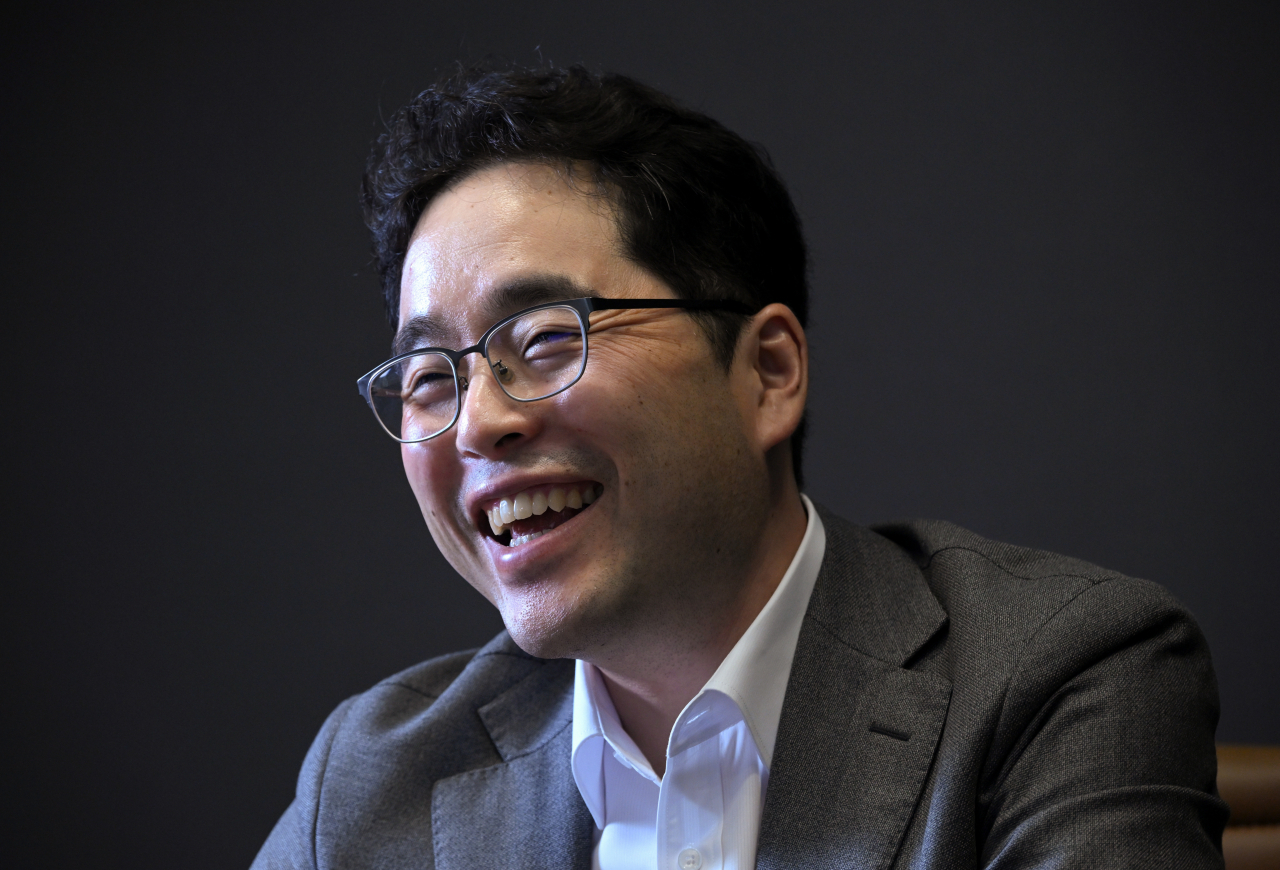[Herald Interview] Next & Bio aims to build Asia’s largest library of organoids
Seoul-based biotech to start providing hospitals with organoids for pancreatic cancer patients from next year
By Shim Woo-hyunPublished : Sept. 21, 2023 - 16:36

South Korean biotech company Next & Bio, which specializes in developing organoid-based medicine solutions, aims to build the largest organoid library in Asia, its CEO told The Korea Herald in a recent interview.
Organoids are cell-based in vitro models that mimic many aspects of the complex structure and function of the corresponding human organs. Organoid-based systems have been recently spotlighted as alternatives to animal experimentation in clinical research and precision medicine.
“Next & Bio’s top priority is to build an Asian cohort that has organoids cultured from biopsy samples of many individuals in the region,” Next & Bio’s co-CEO Yang Ji-hun said during the interview held at the Seoul headquarters last week.
“We are speeding up to make our organoid library ready as soon as possible as organoids are fast emerging as alternatives to animal testing in preclinical research. We aim to become the first mover in the market.”
Next & Bio, established in 2018, is one of the leading players in the burgeoning organoid market here. Korean beauty and bio-healthcare company Kolmar Korea Holdings acquired the firm in 2021 as part of efforts to diversify its business portfolio and seek new growth drivers.
Possessing a variety of organoids will allow Next & Bio to gain a competitive edge, especially in the drug screening market, according to Yang.
“Organoids are more suitable for drug testing than cell-based models because organoids can deliver more accurate drug responses as they are crafted to replicate much of the complexity of an organ and contain mutational profiles of individuals,” he said.
The company has thus far collected around 200 patient-derived organoids in its organoid library. Of them, 150 are organoids cultured with samples taken from patients with seven different types of cancer.
Yang said the company also has its own organoids-on-a-chip, a culture device that can contain a group of three-dimensional organoids. Next & Bio owns patents for its organoids-on-a-chip and artificial intelligence-based screening solutions.
“Because organoids can be cultured in a similar size on the device, researchers can easily notice whether their drug substances are working or not,” Yang said, hinting that the company is already in talks with multiple pharmaceutical companies for possible partnerships.
The US Environmental Protection Agency is moving to reduce mammal study requests in phases by 2025, with plans for a complete ban by 2035. Next & Bio also plans to develop related technologies and secure intellectual properties needed to take the lead in the market.
In line with regulatory changes, the company is also seeking a big leap with an initial public offering in 2025, the year when more pharmaceutical companies are expected to replace their animal experimentation with alternative options and its corporate value will be evaluated more accurately.
Next & Bio will become the first Korean firm to use organoids in clinical fields. It has teamed up with Seoul National University and other local hospitals to start providing organoids for pancreatic cancer patients from February next year.
“Next & Bio can culture organoids using a very small amount of biopsy samples from a pancreatic cancer patient and test pancreatic cancer drugs on organoids. Doctors will then see and decide which drug will work better for that specific patient,” Yang said.
Selecting the right drug in a prompt manner, among other things, is key to treating stage-three cancer patients considering they may survive six to 11 months on average.
“Usually, doctors will choose one drug and try another one with a pancreatic cancer patient without knowing if the drug would work better than the other one. If the drug is found to be not so effective, the doctor will try the other drug, but the drug may not work effectively as the patient has already developed tolerance. Also due to their low survival rate, pancreatic cancer patients often die during their treatment with the second drug,” the CEO said.
Currently, the company can culture organoids of most human organs, except a few such as kidneys, with plans to diversify its organoid culture platforms.
Its strategic focus, for now, is securing more cancer organoids, but in the longer term, it aims to develop cerebral organoids.
The company is also eyeing global expansion. Under a recent partnership with the National University of Singapore’s Cancer Science Institute, it has won access to biopsy samples from diverse ethnic groups in Singapore, including ethnic Chinese and Malaysian Indians.









![[Hello India] Hyundai Motor vows to boost 'clean mobility' in India](http://res.heraldm.com/phpwas/restmb_idxmake.php?idx=644&simg=/content/image/2024/04/25/20240425050672_0.jpg&u=)









